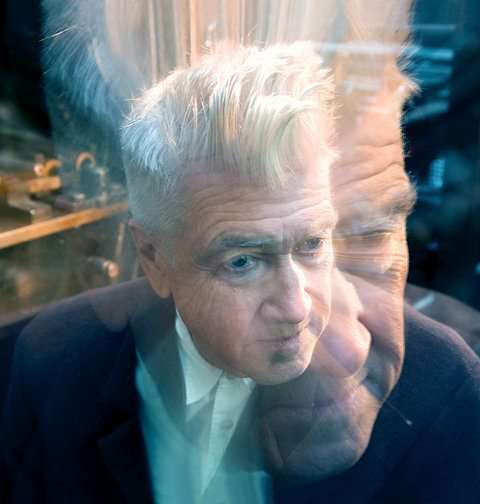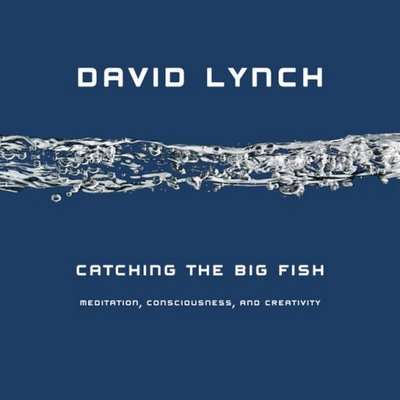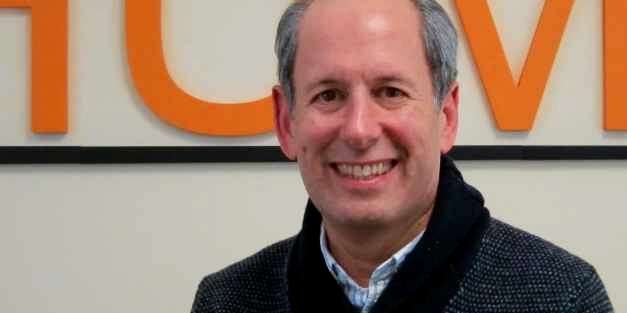“I always wondered if Transcendental Meditation would make someone just so calm that they didn’t want to do anything,” says David Lynch, the iconic film director of Twin Peaks and Mulholland Drive.
It is understandable why this question has seemed so central for Lynch, a man who has made his living in the intensely competitive Hollywood movie industry.
“I wondered if, by meditating, they’d just become a bland person and only want to eat nuts and raisins. But it’s not that way,” says Lynch. Practicing meditation twice a day for the last 45 years has not put a plug on his creativity.
As his newly released Twin Peaks: The Return (18 episodes, starting from May 22) testifies, it might have had a rather opposite effect.
WATCH OFFICIAL TRAILER
https://www.youtube.com/watch?v=vsdRG0mJj-w
Twin Peaks: The Return — The season 3 of the original cult series (1990-91) has been one of the most eagerly awaited follow-up installments in TV history. An eerily atmospheric crime drama ‘with healthy doses of the surreal’ spins its yarn in the deceptively average small town, Twin Peaks.
How it all started: “Diving deep within”
“I guess people start meditation for many different reasons, but each person who starts will get the benefit they are looking for, and many other benefits as well,” says David Lynch.
Before Lynch started meditating, he was struggling with anger and depression.
“I heard a phrase, ‘True happiness is not out there. True happiness lies within.’ And this phrase had a ring of truth to me, but the phrase doesn’t tell you where the within is, nor how to get there.
One day it hit me that meditation would be the way to go within.”

So, when his younger sister suggested he learn Transcendental Meditation, Lynch plunged in.
“Down within I went. It was so beautiful, so profoundly beautiful. I said, ‘Where has this experience been?’”
There was also immediate relief to his angst.
“I felt the suffocating rubber clown suit of negativity dissolving, and it was such a feeling of bright freedom.”
Since that morning in 1973, Lynch has not missed his twice a day 20 minute meditation sessions once.
“You say goodbye to the garbage and infusing gold. The long and short of it is that you get happy and feel good being alive.”
And Lynch certainly does not hold back when describing the bliss of transcending:
“It’s a field that is so beautiful, so powerful, it’s eternal, it’s immortal, it’s immutable, it’s infinite, it’s unbounded.
“For me, I got more and more happiness in the doing of things, ideas seemed to flow more freely. I felt more energy for the work and I began to see other people as people I liked more and more. I felt healthier and more comfortable in my body. The whole world suddenly looked better.
You start really enjoy life. You look around and everything looks better. People don’t look like enemies, they look like friends. Things that used to stress you, don’t stress you so much, sometimes they make you giggle.
You feel good, you wanna buy a bunch of people coffees. You want to put your arm around people. You wanna enjoy life.”
WATCH VIDEO: David Lynch touts Transcendental Meditation from the atmospheric set of Twin Peaks: The Return
https://www.youtube.com/watch?v=9LyyHNsW0eE
Breaking from the inner skeptic: “It’s ignorance that keeps us in that boat of suffering”
The movie director is aware that meditation might not be an easy pill to swallow for many reasons. All kinds of fears lurk underneath the skepticism: Is this too esoteric, overly cranky? And what if one loses the creative edge, the passion for doing things?
Yet as Lynch says, these fears and anxieties will simply fade away as unfounded.
“I grew up in the Northwest, and if you couldn’t see it, feel it, touch it or kick it then it didn’t exist. But as a kid I would dream and I would feel, and I knew that something more was going on, but I didn’t think about it all the time.
And when you grow up then you start getting anxieties, you start getting fears; things happen and you start getting angry, you get confused.
I had darkness and confusion, and it’s tough being a human being – but it shouldn’t be. It’s ignorance that keeps us in that boat of suffering. That’s not the way it’s supposed to be.”
For David Lynch, the spiritual has increasingly become to mean truthful. It is only an honest look into oneself and our daily existence which can bring about a deeper transformation.
“The torment is inside the people,” he says.
“And you can’t change that unless you get down on a deeper level. So we are all like detectives trying to find that truth.”
The wellspring of creativity: “There are billions of ideas!”
We all have it, Lynch suggests. The film maker who has become one of the symbols of the unexpected and the original refuses to see something exclusive in his creative capacity.
The really important question, Lynch explains, is not how to find your missing inspiration. It is always there, naturally ever present. The real issue is, rather: What are the factors that are blocking it, not letting me soar high and free?
“Ideas flow through a conduit. Stress squeezes that conduit. Tension, depression, hate, Anger squeezes it,” Lynch says.
“A lot of artists say: I don’t want to get a technique that makes me like everybody else and makes me calm and I lose my drive, my edge. I don’t have any more power of individuality any more.
This is what I thought too.

Au contraire, you get more of you! More energy to do the things. There are billions of ideas and you find the ones you love. We start transcending that conduit widens out and you start enjoying things and love the doing.”
Lynch has created some of the most haunting and eerie moments in the history of film making. Yet to do that, Lynch reveals, there is no need for him to suffer.
In other words, you don’t have to be evil to show evil on screen.
“Stories are always going to be stories, and worlds that we can go into where there’s suffering, there’s confusion, there’s darkness, there’s tension, there’s anger, there’s murder, and so on.
But the filmmaker or the author doesn’t have to suffer in order to show that. In fact, and this is common sense too, the more the artist suffers the less creative he or she is going to be. And the less likely [the artist is] going to enjoy [his or her] work or be able to do really do good work.
Fear and anger and tension, anxieties and stress and depression – these things strangle creativity. And you can’t think your way out of it, you can’t wish for a glass of water when you’re thirsty – you’ve got to have real water. You can’t pretend you’re happy if you aren’t.”
So, every morning and every evening, Lynch closes his eyes and dives deep into himself.
“The more your consciousness, your awareness is expanded, the deeper you go toward the source and the bigger ideas you can catch,” he muses.
“What I’ve discovered is that the practice of diving within in meditation makes ideas easier to catch and the enjoyment of the doing increases exponentially and you appreciate people more – you seem to almost recognize everyone. It becomes fun to work. It’s not the kind of thing that you even think about, it just grows naturally. You can still get angry, but you can’t hold onto that anger. You can still get sad, but you can’t hold onto it.

So many people do stuff but don’t enjoy doing it.
I say, that’s your life going by. It’s important to enjoy the doing of something.”
Film industry: “It can be really close to hell”
But how to truly enjoy your life as a film director in Hollywood? Glamour, fame and freedom of self-expression that we tend to associate with the job are just one side of the coin. The movie industry also means aggressive competition, envy, greed, and lots of simmering anger.
For Lynch, the answer to the problem begins with an honest look at things. No covering up, no polishing over.
“I once noticed an article about somebody here in Hollywood who ran his whole business on fear, like it was a macho, cool thing. Now to me, it’s like that person is an idiot. Not only that, but he’s probably riddled with fear himself, broadcasting it and needing to give more of it to others.
So, it’s common sense that if a guy goes to work and he’s always afraid of losing his position or his whole job, or being humiliated publicly, his fear will often turn to anger. And a person becomes ultimately angry at his work. And then he begins to hate.
And this is the kind of life that this person in Hollywood, and probably many, many others who run the show, give to their employees.
And it’s real close to hell. And you don’t get people to go that extra mile for you. They can probably hardly wait to get away from you and away from their work. And the creativity is cramped – negativity cramps creativity.”
When one sees this truth, one is bound to respond to it naturally. It is then no wonder that, while widely acclaimed and loved by the audience, Lynch has also earned plenty of affection from the people working with him on the set.
There seems to be something original not only about his completed oeuvre, but in his whole work process as such.
Mädchen Amick, cast both in Twin Peaks and Twin Peaks: The Return, reflects on David Lynch as one-of-a-kind Hollywood director. “There’s so much flow of energy around him,” Amick says. “Every single person on set is valued and every single one of them is invited into the creative process.”
As Twin Peaks happened to be Amick’s first introduction to Hollywood, she took this kind and open ambience for an obvious industry norm. After 25 years in town and many contrasting experiences later, she knows better. “It’s this really beautiful environment that, now that I’ve worked in the business, I appreciate even more for how unique and special it is.”
WATCH VIDEO: Mädchen Amick on what it was like to return to Twin Peaks
The TM technique: “Any human being who can think can learn this”
The catalogue of Lynch’s feature length movies is not so terribly long. But nearly every one of these is a masterpiece in its own right. Next to the TV series Twin Peaks there stand Academy Award winning titles like Mulholland Drive (2001), The Elephant Man (1980) or Blue Velvet (1986). There is his first full movie, Eraserhead (1977), which became a cult film and launched Lynch’s commercial career, and the Inland Empire (2006), a strange, hauntingly other-wordly journey even by the director’s own elevated standards of strangeness.
All these works were created after Lynch started meditating.
In one of the opening scenes of his documentary Meditation, Creativity, Peace (2012), we see Lynch – a self-confessed dessert connoisseur – holding up a donut.
“You don’t know how sweet and how good it is until you have tasted it,” Lynch drawls out pensively. “Meditation gives an experience much sweeter than this donut. It gives the experience of the sweetest nectar of life: pure bliss consciousness.”
He is talking here about the specific meditation practice called Transcendental Meditation, or TM for short.
“The beauty of Transcendental Meditation is that it gives effortless transcending. It is not a trying form of meditation, not concentration, nor contemplation,” Lynch describes the beauty of the technique.
“This act of diving within in TM is so easy because it’s just natural – the mind wants to go into fields of greater happiness. The deeper you go, the more there is, until you hit pure bliss. Transcendental Meditation is the vehicle that takes you there, but it’s the experience that does everything.
Any human being who can think can learn this technique.
You don’t have to believe it and it will still work. It’s like the X-ray machine. You can say till the cows come home: it can’t see my bones. You step in front of the X-ray machine, there your bones are. You do this technique, you are going to transcend,” Lynch confirms.
WATCH VIDEO: David Lynch discusses Transcendental Meditation with Brandon Boyd
The David Lynch Foundation: “I’m really getting sick of all the suffering and negativity in this world, it’s time to get the word out”
Over the last decade, Lynch has spent much of his time and money helping low-income families, veterans, homeless people and other high-stress groups learn Transcendental Meditation.
Back in 2005, he created The David Lynch Foundation, which has sponsored meditation programs for half a million children in places as far-flung as Congo, South America and the West Bank.
Much of the money has come from fund-raising events headlined by stars like Katy Perry, Jerry Seinfeld, Louis C.K. and Sting.
“I hate speaking in public,” Lynch says.
“But I look at the world and I say if people only knew that it’s true that happiness comes from inside, or to use another expression: “The world is as you are.”
Maharishi Mahesh Yogi, the founder of Transcendental Meditation, uses the analogy that if you have dark green, dirty glasses on, that’s the world you see, that’s your experience. But if you start meditating, you take the natural dive into pure consciousness.”
Schools, especially those located in the inner city areas of big cities, have become one focal point for the David Lynch Foundation. Lynch, the 2016 winner of the American Ingenuity Award in Education, explains the reasoning.
“Students now have so much stress, so much torment inside and they are asked to learn all these things.
People are trying to help them—more one-on-one with teacher, prettier rooms, better books, computers, but it’s not addressing the torment inside.”
The DLF was set up to do exactly that: address the stress and anxiety which block all meaningful progress. In many schools like Visitacion Valley in San Francisco where the DLF brought TM into the curriculum, the breakthrough has been quick and astounding.
“It used to be one of the worsts schools in the area, with fights breaking out daily and so on,” Lynch recalls.
“But within one year of introducing the Transcendental Meditation program to students and the staff, the fighting stopped. So, let’s say it was way more positive [than] I thought it would be.”
WATCH VIDEO: The David Lynch Foundation benefits San Francisco inner city schools
“For students things are tough, there’s so much pressure. They’re sitting right on the brink wondering, “What am I gonna do in life? How is it gonna go? And I gotta get this, I gotta get that, I gotta get this.”
It’s just like a steamroller. And then there’s also a lot of partying. So, it’s confusing to have all this stuff rolling along. But with meditation, it’s like you’re partying, and you’ll enjoy things more, and have the clarity, the ability to focus, and the ease in gaining knowledge. And you may not even realize it, but the people around you who obviously know you, your family and friends, they see it. It’s the weirdest thing.”
However, it’s not that Lynch expects everyone to jump on board. In spite of all his surreal images and twisted plot sequences, the director is ultimately someone based in sane realism. He knows that the world is not going to change overnight.
“At the schools where Transcendental Meditation has been introduced, the feeling in the class rooms each night is very good. Realistically speaking, at least half might have said, “Well, Lynch is a cool guy and all, but meditation is not for me.” Or maybe, “He’s not a cool guy and meditation is not for me.”
But one girl said, “I’ve been waiting my whole life to hear this.” So it’s a range.
And even if one person got something and started really blossoming because of it, it’s a good thing.”
READ MORE:
- David Lynch Receives the Namaste Award
- Meditation, Creativity, Peace: A Documentary about David Lynch and His Travels
- Interview with Bob Roth, the Executive Director of the David Lynch Foundation
- A Big Catch: “Catching the Big Fish” by David Lynch
- Lynch on Peace in the Middle-East
- David Lynch Releases New Studio Album, “The Big Dream”
Sources:
“Why I Meditate” by David Lynch, The Huffington Post
“An Ocean of Solutions: Interview with David Lynch” by Chris Grosso, Origin Magazine
“Ten Lessons on Filmmaking from David Lynch” by Ariston Anderson, Filmmaker Magazine
“David Lynch in conversation: “It’s ignorance that keeps us in that boat of suffering”” by Mitch Horowiz, Salon
“David Lynch on meditation and ‘Catching the Big Fish,'” Interfaith Radio
“Director David Lynch Wants Schools to Teach Transcendental Meditation to Reduce Stress” by Smithsonian Magazine



















